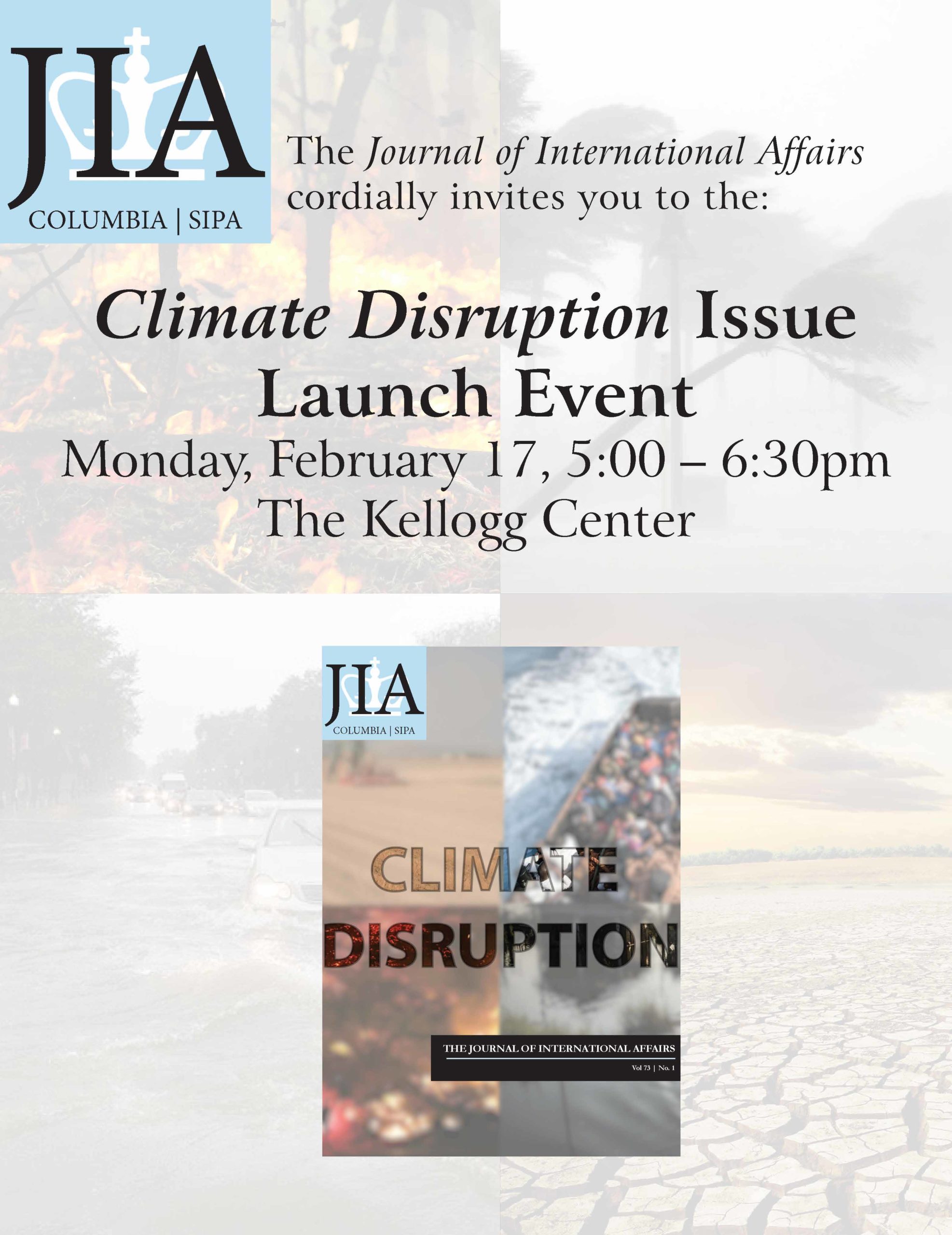The Journal of International Affairs: Climate Disruption Issue Launch Event – Monday, February 17, 2020
Event Agenda:
Opening remarks: 5:05-5:10
Introduction of panelists: 5:10-5:15
Author remarks (describing their contributions): 5:15 – 5:35
Moderated questions: 5:35 – 6:00
Audience Q&A: 6:00-6:30
Location:
Columbia University
The Kellogg Center
School of International and Public Affairs
420 West 118th St., Room 1513
New York, NY 10027
